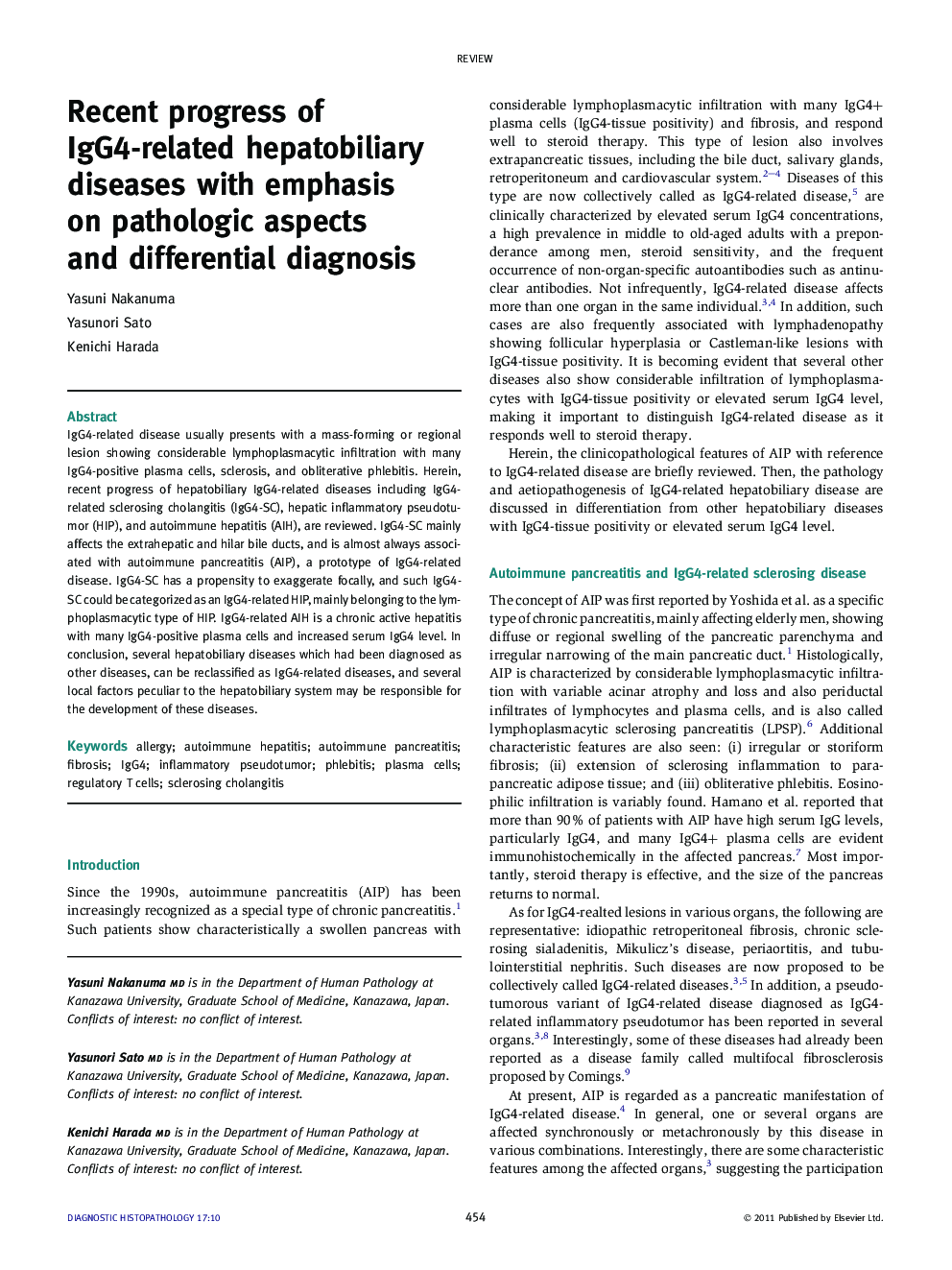| Article ID | Journal | Published Year | Pages | File Type |
|---|---|---|---|---|
| 4131412 | Diagnostic Histopathology | 2011 | 8 Pages |
IgG4-related disease usually presents with a mass-forming or regional lesion showing considerable lymphoplasmacytic infiltration with many IgG4-positive plasma cells, sclerosis, and obliterative phlebitis. Herein, recent progress of hepatobiliary IgG4-related diseases including IgG4-related sclerosing cholangitis (IgG4-SC), hepatic inflammatory pseudotumor (HIP), and autoimmune hepatitis (AIH), are reviewed. IgG4-SC mainly affects the extrahepatic and hilar bile ducts, and is almost always associated with autoimmune pancreatitis (AIP), a prototype of IgG4-related disease. IgG4-SC has a propensity to exaggerate focally, and such IgG4-SC could be categorized as an IgG4-related HIP, mainly belonging to the lymphoplasmacytic type of HIP. IgG4-related AIH is a chronic active hepatitis with many IgG4-positive plasma cells and increased serum IgG4 level. In conclusion, several hepatobiliary diseases which had been diagnosed as other diseases, can be reclassified as IgG4-related diseases, and several local factors peculiar to the hepatobiliary system may be responsible for the development of these diseases.
